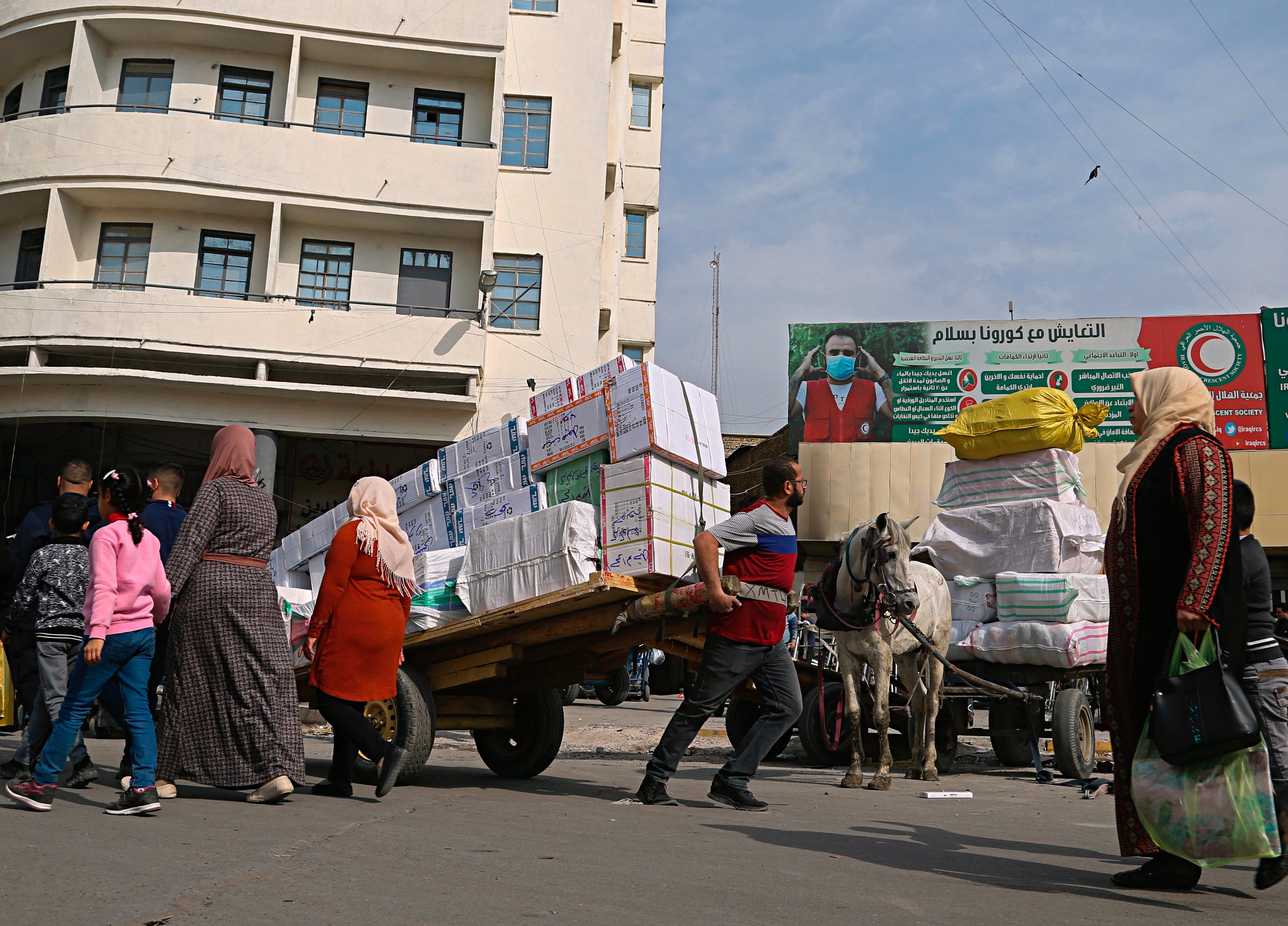UN ends Iraq's requirement to pay victims of Kuwait invasion
The U.N. Security Council has voted unanimously to end Iraq’s requirement to compensate victims of its 1990 invasion of Kuwait, with Baghdad having paid out $52.4 billion to 1.5 million claimants

Your support helps us to tell the story
From reproductive rights to climate change to Big Tech, The Independent is on the ground when the story is developing. Whether it's investigating the financials of Elon Musk's pro-Trump PAC or producing our latest documentary, 'The A Word', which shines a light on the American women fighting for reproductive rights, we know how important it is to parse out the facts from the messaging.
At such a critical moment in US history, we need reporters on the ground. Your donation allows us to keep sending journalists to speak to both sides of the story.
The Independent is trusted by Americans across the entire political spectrum. And unlike many other quality news outlets, we choose not to lock Americans out of our reporting and analysis with paywalls. We believe quality journalism should be available to everyone, paid for by those who can afford it.
Your support makes all the difference.The U.N. Security Council voted unanimously Tuesday to end Iraq’s requirement to compensate victims of its 1990 invasion of Kuwait, with Baghdad having out more than $50 billion to 1.5 million claimants.
Michael Gaffey, Ireland’s ambassador to the U.N. in Geneva and president of the governing board of the U.N. Compensation Commission, whose fund decided on the claims, told the council after the vote that the body's work was historic “for the United Nations and for effective multilateralism.”
“Ultimately, 2.7 million claims were submitted to the commission seeking $352 billion in compensation,” he said, and the $52.4 billion awarded to 1.5 million claimants “represents approximately 15% of the total claims.”
Under a Security Council resolution adopted in April 1991 after a U.S.-led coalition routed Saddam Hussein’s forces and liberated Kuwait in the first Gulf War, Iraq was required to set aside a percentage of proceeds from its oil exports for the fund to compensate victims of the conflict.
That share was 5% in 2013, when the council voted to end the possible military enforcement of several requirements imposed on Iraq after the invasion in recognition of improved relations with Kuwait. The level stood at 3% for Iraq's final payment on Jan. 13.
Gaffey said the governing council adopted its final decision Saturday declaring that Iraq’s government had fulfilled its international obligations to compensate for losses and damages suffered as a direct result of its unlawful invasion of Kuwait.
He said the fund’s governing council gave priority to claims by individuals who were forced to leave Iraq or Kuwait, to those who suffered injuries or whose spouse, child or parent died, or who suffered personal losses of up to $100,000. He said this humanitarian decision “marked a significant step in the evolution of international claims practice.”
But there were also companies and businesses that received funds. Kuwait Petroleum Corporation successfully claimed $14.7 billion for oil production and sales losses resulting from damage to the country’s oil fields during the 1990-91 Iraqi invasion and occupation.
The Security Council resolution adopted Tuesday affirms that Iraq has fulfilled its international obligations, that “Iraq is no longer required to deposit a percentage of proceeds from export sales of petroleum, petroleum products and natural gas into the fund,” and that the commission’s claims process “is now complete and final and that no further claims shall be made to the commission.”
The council terminated the commission's mandate under the 1991 resolution and ordered it to conclude outstanding matters so it can close by the end of 2022.
Iraqi Foreign Minister Fuad Hussein told the council that his country has concluded “an important 30-years-long chapter and embarks on a new chapter in its diplomatic, political and economic journey.”
“This will be an era of a more prominent regional and international role, commensurate with Iraq’s historical and cultural significance for the region and the world, an era during which Iraq will be an active member committed to the aspirations and goals of the international community,” he said.
Kuwaiti Ambassador Mansour Al-Otaibi welcomed the resolution’s unanimous adoption and commended “such a historic achievement by the council in relation to its work on compensation.”
“We are fully aware that the aim of compensation is not to punish the aggressor but rather to ensure accountability" and to hold the aggressor liable for damages and bring “trust to affected governments and individuals,” he said.
Al-Otaibi said the world should not forget that establishing compensation and addressing the impact of aggression “are key to building trust, reconciliation and clearing any remaining issues that might in the future stand in the way of restoring and forging relations and achieving common interests of the states concerned.”